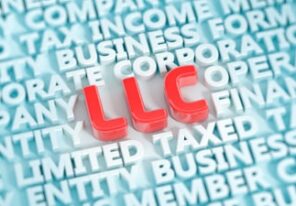Making Your Business Official
Should You Go Into Business with Your Friends?
Either you’ve thought about it or you know someone who has: going into business with a good friend seems like a wonderful idea. Why wouldn’t it be? You already trust them, you know their habits,…
9 Questions to Ask Yourself Before Choosing a Business Partner
Launching a business is both one of the toughest and most rewarding experiences an entrepreneur will encounter. For that reason, many entrepreneurs join forces with a partner in order to defray costs, build creativity and keep their…
Sole Proprietorship: Is the Risk Worth It?
If you are considering starting a business, the simplest and least expensive form of business is a sole proprietorship. A sole proprietorship is a one-person business that reports its income directly on the individual’s personal…
Business Structure Types for Entrepreneurs
CorpNet CEO Nellie Akalp joins me to discuss business structure types including the sole proprietorship, LLC, and corporation. We focus mainly on the difference between LLCs and S-Corps, which are the two most popular business structures used by small businesses today.
5 Reasons You Should Incorporate Your Business
Incorporation provides your business with a legal structure, declaring it an entity separate from you, the owner. Whether you form a corporation or LLC there are many advantages to consider.
Extending Your Runway
Use your board to help you to navigate through control over these five resources. If you don’t have a viable, relevant board, build one no matter what your size and stage of development. One thing is usually sure: an entrepreneur cannot successfully do it all alone.
How Do I Set Up My New Business for Tax Purposes?
New business owners often ask, “How do I set up my business for tax purposes?” One of the choices you make when starting a business is the type of legal organization you select. This decision can affect how much you pay in taxes, the amount of bookkeeping and paperwork required, the personal liability you might be responsibility for, and your ability of borrow money.
S Corporation Pitfalls to Avoid
When a business operates as a sole proprietorship or as a partnership, there are few legal and tax regulations that must be followed. However, if that business converts to a corporation, a number of things change and the owner(s) must adhere to these new expectations or run the risk of having the corporate form of organization legally disregarded.
Don’t Trademark Your Business Name Without These 3 Tips
To protect the small business you’ve worked so hard for, it’s important that you go through the proper channels to obtain a federally registered trademark for your name.
An Overview of S-Corporations
The S-corporation is the most popular tax entity in the United States and the number of S-corps is increasing faster than any other type of entity. A for-profit, state-chartered corporation may elect S Corp status.













